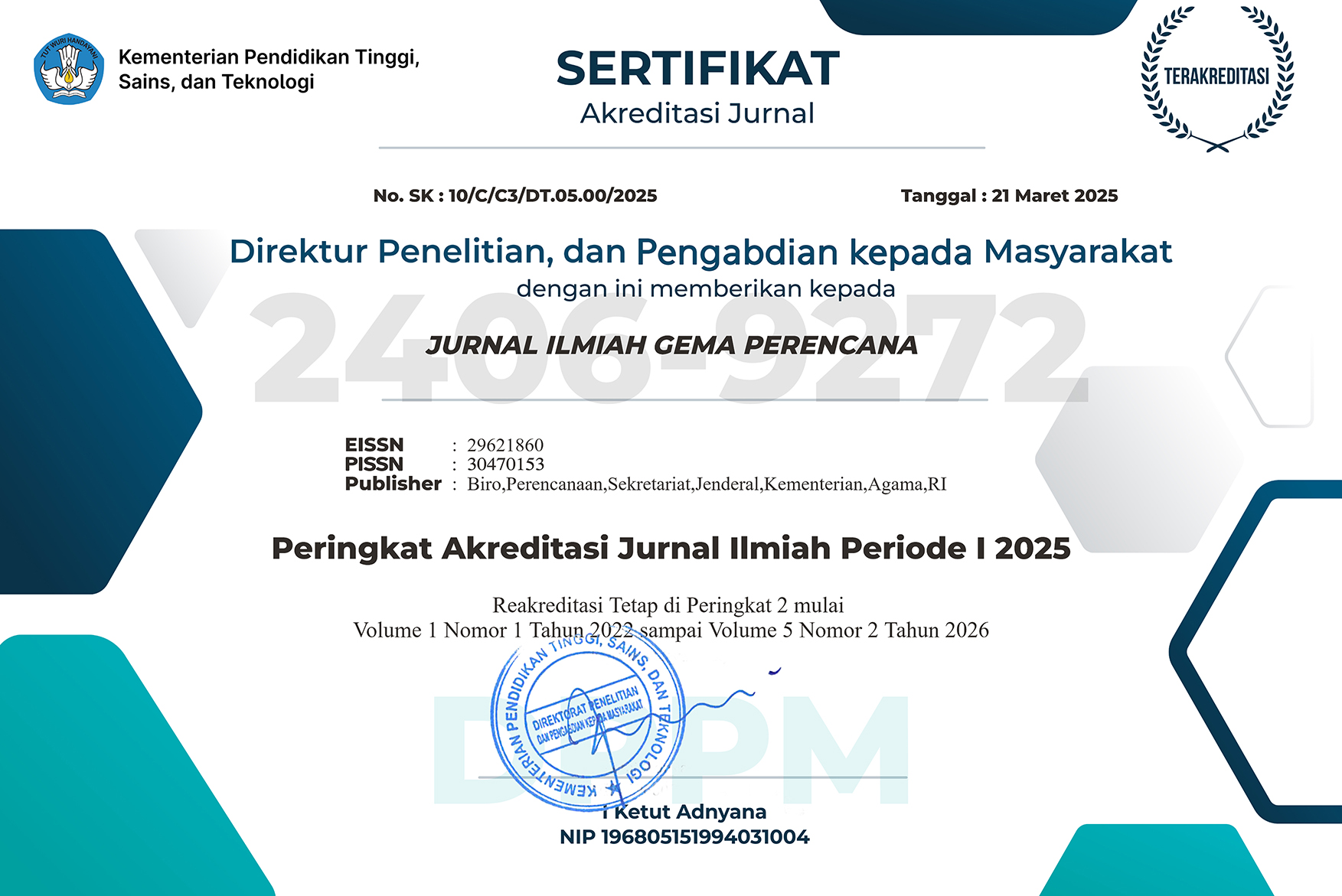Data Disparities and Overlapping PIP Recipients in Madrasahs Threaten Effectiveness and Cause State Losses
DOI:
https://doi.org/10.61860/jigp.v4i2.282Abstract
The problem of low reading interest among elementary school students remains a crucial issue that requires serious attention. This condition is evident from the results of an initial survey, which showed that the majority of students are more interested in gadgets and social media than reading books. The gap between the ideal hope of creating a literate generation and the reality of low reading interest is the basis for the urgency of research. This study aims to test the effectiveness of the Project-Based Learning (PjBL) method in increasing students' reading interest. This study used a quantitative approach with a quasi-experimental design and used a population of all fifth-grade students in an elementary school. The research sample was selected using a purposive sampling technique, consisting of 30 students in the experimental group and 30 students in the control group. Data were collected using a reading interest questionnaire that had been tested for validity and reliability, and analyzed using an independent t-test to compare the average differences between the two groups. The results showed a significant increase in reading interest in the experimental group taught using the PjBL method compared to the control group. This increase was supported by the significantly higher average post-test score of the experimental group. It was concluded that the implementation of project-based learning methods was effective in increasing students' reading interest.
Downloads
References
Badan Pemeriksa Keuangan. (2022). Laporan Hasil Pemeriksaan atas Pelaksanaan Program Indonesia Pintar (PIP). Badan Pemeriksa Keuangan Republik Indonesia.
Badan Perencanaan Pembangunan Nasional. (2023). Laporan Hasil Integrasi Data Kesejahteraan Sosial untuk Penyaluran Bantuan Pemerintah. Bappenas.
Birkland, T. A. (2015). An Introduction to the Policy Process: Theories, Concepts, and Models of Public Policy Making (4th ed.). Routledge.
Boardman, A. E., Greenberg, D. H., Vining, A. R., & Weimer, D. L. (2017). Cost-Benefit Analysis: Concepts and Practice (5th ed.). Cambridge University Press.
Dunn, W. N. (2018). Public Policy Analysis: An Integrated Approach (6th ed.). Routledge.
Eisenhardt, K. M. (1989). Agency theory: An assessment and review. Academy of Management Review, 14(1), 57-74.
Fung, A., & Wright, E. O. (2003). Deepening Democracy: Institutional Innovations in Empowered Participatory Governance. Verso.
Kementerian Agama. (2023). Pedoman Pelaksanaan Program Indonesia Pintar (PIP) Madrasah Tahun Anggaran 2023. Direktorat Jenderal Pendidikan Islam.
Kementerian Komunikasi dan Informatika. (2021). Kebijakan Satu Data Indonesia: Panduan Implementasi dan Tata Kelola Data. Pusat Data dan Informasi.
Kementerian Pendidikan dan Kebudayaan. (2020). Petunjuk Teknis Pelaksanaan Program Indonesia Pintar (PIP). Pusat Layanan Pembiayaan Pendidikan.
Komisi Pemberantasan Korupsi. (2022). Kajian Sistem Penyaluran Bantuan Sosial Bidang Pendidikan. Direktorat Penelitian dan Pengembangan.
Laudon, K. C., & Laudon, J. P. (2016). Management Information Systems: Managing the Digital Firm (14th ed.). Pearson.
Munda, G. (2005). Social Multi-Criteria Evaluation for a Sustainable Economy. Springer.
OECD. (2007). OECD e-Government Studies: Luxembourg. OECD Publishing.
Parsons, W. (2012). Public Policy: An Introduction to the Theory and Practice of Policy Analysis (2nd ed.). Edward Elgar Publishing.
Patton, M. Q., & Cochran, M. (2021). Qualitative Research & Evaluation Methods (5th ed.). SAGE Publications.
Peraturan Presiden Nomor 39 Tahun 2019 tentang Satu Data Indonesia.
Pusat Data dan Informasi Kesejahteraan Sosial. (2021). Kebijakan Satu Data Terintegrasi dalam Penyaluran Bantuan Sosial. Kementerian Sosial.
Rawls, J. (1971). A Theory of Justice. Harvard University Press.
Rhodes, R. A. W. (1996). The new governance: Governing without government. Political Studies, 44(4), 652-667.
Rosenbloom, D. H., & Kravchuk, R. S. (2015). Public Administration: Understanding Management, Politics, and Law in the Public Sector (9th ed.). McGraw-Hill Education.
United Nations. (2016). United Nations E-Government Survey 2016: E-Government in Support of Sustainable Development. United Nations.
Wahyudi, B. (2023). "Optimalisasi Data Penerima Bantuan Pendidikan untuk Meningkatkan Efektivitas Program PIP." Jurnal Kebijakan Publik, 10(2), 45-60.
Downloads
Published
How to Cite
Issue
Section
License
Copyright (c) 2025 Muhammad Amin

This work is licensed under a Creative Commons Attribution 4.0 International License.






